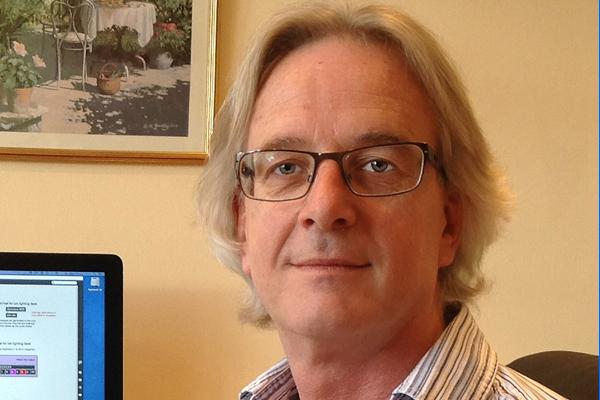 Image
Image
Music-making for the deaf
London Nov 13 (IBNS) A Birmingham (UK) researcher is exploring new ways to enhance the experience of deaf musicians with new visual and touch techniques.
Richard Burn – currently studying a PhD in Music Technology at Birmingham City University’s Integra Lab – hopes his research will give deaf people a greater opportunity to express themselves and help enable them to create new works for both deaf and hearing audiences to enjoy.
Deaf musicians tend to favour acoustic instruments – quite often percussion –which produce a distinct physical feedback from vibration generated by the instrument, alongside more subtle visual clues. However, using electronic instruments, they often find it more difficult to resolve some of the characteristics of sound, such as pitch and harmonics.
Richard proposes the creation of a new musical interface that will combine haptic and visual forms of feedback to create a more inclusive experience for deaf people.
Alongside vibrations, visual indictors will appear on a digital display that collectively form a ‘sonic fingerprint’ when an instrument is played, highlighting different components that make up the sound.
Richard Burn, PhD candidate, Birmingham City University said: “Traditional waveform representations are unable to truly describe what music actually sounds like. There are much more subtle characteristics of sound that may be better represented visually, for example, by using simple shapes and symbols to describe harmonic content."
“My proposed system will hopefully give deaf players of electronic instruments the same sort of experience as that enjoyed by deaf players of acoustic instruments," Burn said.
Having spent 35 years in the Royal Air Force, Richard decided to pursue his long-standing interest in music technology. While studying for an MSc, he did some work on visual feedback – using light and colour to enhance musical performance. He decided to study this in more depth for his PhD, but with a particular focus on the needs of deaf musicians
Richard added: “I will be conducting a range of interviews and surveys in order to understand what type of feedback would be useful to deaf musicians. The second stage will be developing systems that deliver those feedback loops and then the third phase will be testing the systems that I’ve developed to see whether they fit the project’s initial aims.”
Top Headlines
-
News
This Union budget is about building capacity, not chasing short-term consumption
February 02, 2026
-
News
AI will replace surgeons, coders and billions of jobs, warns Sraddhalu Ranade at MCHD-SKC Memorial Lecture
February 01, 2026
-
News
Sheikh Hasina attacks Muhammad Yunus from first public address in Delhi, urges uprising in Bangladesh
January 23, 2026
-
News
Top Maoist leader with 2 crore bounty among 16 eliminated in major Jharkhand encounter
January 23, 2026
-
News
Russia, US, Ukraine to hold first trilateral talks in UAE, Zelensky announces
January 22, 2026
-
News
Supreme Court slams Maneka Gandhi over remarks on stray dogs case, flags possible contempt
January 20, 2026
-
News
'India-EU trade deal nears finish line': European Commission Prez at Davos, calls it mother of all deals
January 20, 2026
-
News
Nitin Nabin becomes BJPs youngest president ahead of key assembly polls, PM Modi calls him my boss
January 20, 2026
-
News
PM Modi calls Nitin Nabin my boss as he takes over BJP leadership
January 20, 2026
-
News
David Beckhams son drops bombshell, accuses parents of trying to ruin his marriage
January 20, 2026





